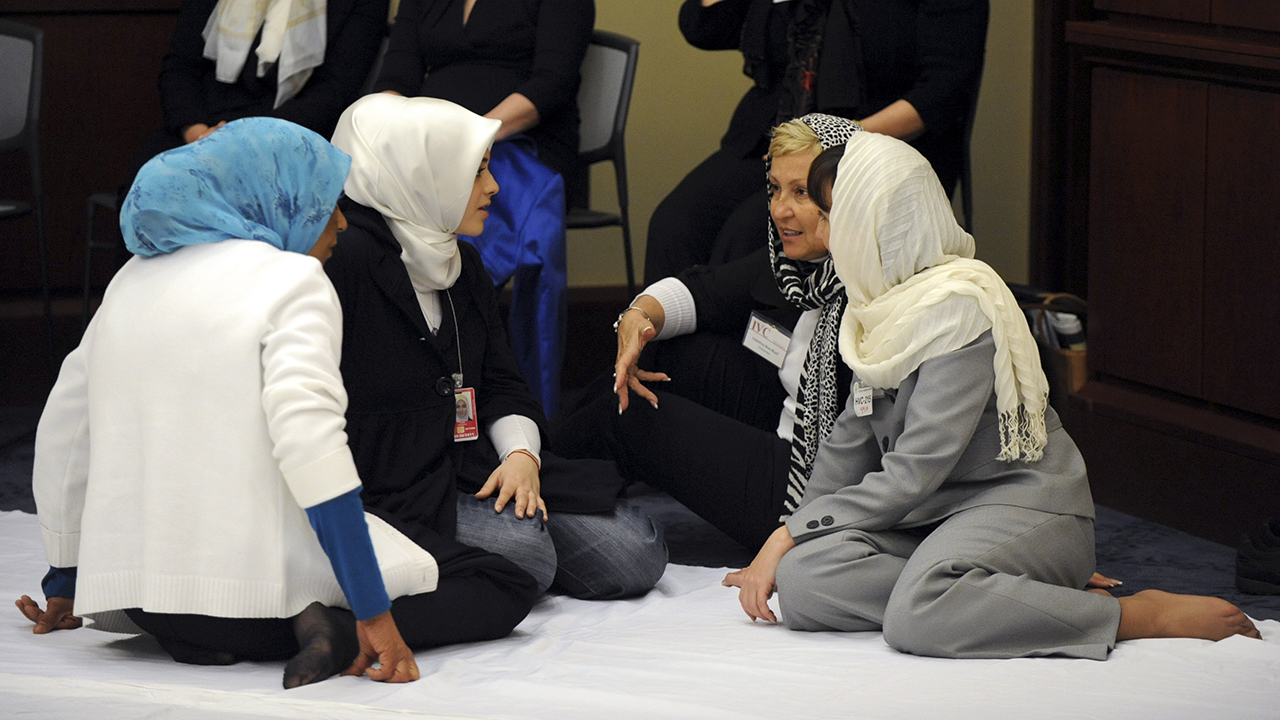Women becoming more involved in US mosques – Report
Women continued to be less involved than men in mosque life in the United States, but the pattern appears to be changing, according to a recent survey of American houses of worship. The share of mosques in which adult women account for more than a quarter of all attendees at the Friday Jumah prayer grew […]

UNITED STATES – APRIL 09: Muslims gather for Friday prayers in Capitol Visitor Center, April 9, 2010. The prayers called Jummah are hosted by the Congressional Muslim Staffers Association. (Photo By Tom Williams/Roll Call/Getty Images)
Women continued to be less involved than men in mosque life in the United States, but the pattern appears to be changing, according to a recent survey of American houses of worship.
The share of mosques in which adult women account for more than a quarter of all attendees at the Friday Jumah prayer grew between 2011 and 2020, according to the new study, conducted by Ihsan Bagby, an associate professor of Islamic studies, as part of the 2020 Faith Communities Today (FACT) study. Women represented more than a quarter of attendees at just 14% of US mosques in 2011, a share that rose to 21% of mosques by 2020.
Despite the increase, men continue to account for the vast majority of attendees at Friday prayer at most US mosques. Men make up the majority of Jumah prayer attendees in 94% of mosques, and there were no mosques in which men make up fewer than three-in-10 attendees at Friday prayer. The survey also found that while 44% of mosques have no children at the Friday prayer (which typically happens during the school day), children were present in 55% of mosques.
The relatively small share of women among Friday mosque congregants aligns with results from previous Pew Research Center surveys of Muslim American adults.
The center’s most recent study, conducted in 2017, found that Muslim women were less likely than men to attend religious services at a mosque each week (37% vs. 48%), and less likely to say they were satisfied with the quality of mosques where they live (67% vs. 78%) – despite being no less likely to pray all five daily prayers (45% vs. 39%).
At least in part, this may reflect a traditional understanding among many Muslims that attendance at the Friday services is required of men but not women. Indeed, around the world, Muslim men are often much more likely than Muslim women to say they regularly attend mosque, even though there is no such gender gap when it comes to frequency of prayer or the self-described importance of religion in Muslims’ lives in most countries surveyed.
Though women make up a relatively small share of the attendees at Friday prayer, the new FACT study found that most US mosques (55%) have a dedicated women’s group, and roughly three-quarters (77%) have activities or programmes specifically for women.
On both of these measures, mosques’ efforts have grown since 2011. At that point, only 29% of mosques had a women’s group, and seven-in-10 (69%) had activities or programmes specifically for women.
– Pew Research Center
